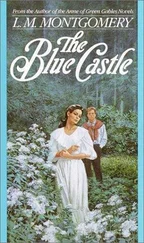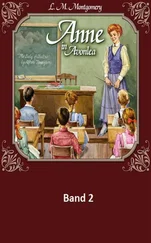Lucy Montgomery - Rilla of Ingleside
Здесь есть возможность читать онлайн «Lucy Montgomery - Rilla of Ingleside» весь текст электронной книги совершенно бесплатно (целиком полную версию без сокращений). В некоторых случаях можно слушать аудио, скачать через торрент в формате fb2 и присутствует краткое содержание. Жанр: Детская проза, на английском языке. Описание произведения, (предисловие) а так же отзывы посетителей доступны на портале библиотеки ЛибКат.
- Название:Rilla of Ingleside
- Автор:
- Жанр:
- Год:неизвестен
- ISBN:нет данных
- Рейтинг книги:4 / 5. Голосов: 1
-
Избранное:Добавить в избранное
- Отзывы:
-
Ваша оценка:
- 80
- 1
- 2
- 3
- 4
- 5
Rilla of Ingleside: краткое содержание, описание и аннотация
Предлагаем к чтению аннотацию, описание, краткое содержание или предисловие (зависит от того, что написал сам автор книги «Rilla of Ingleside»). Если вы не нашли необходимую информацию о книге — напишите в комментариях, мы постараемся отыскать её.
Rilla of Ingleside — читать онлайн бесплатно полную книгу (весь текст) целиком
Ниже представлен текст книги, разбитый по страницам. Система сохранения места последней прочитанной страницы, позволяет с удобством читать онлайн бесплатно книгу «Rilla of Ingleside», без необходимости каждый раз заново искать на чём Вы остановились. Поставьте закладку, и сможете в любой момент перейти на страницу, на которой закончили чтение.
Интервал:
Закладка:
Walter had gone to town on the early train, and Nan offered to look after Jims for the day and so set Rilla free. Rilla was wildly busy all day, helping to decorate the Glen hall and seeing to a hundred last things. The evening was beautiful, in spite of the fact that Mr. Pryor was reported to have said that he "hoped it would rain pitch forks points down," and to have wantonly kicked Miranda's dog as he said it. Rilla, rushing home from the hall, dressed hurriedly. Everything had gone surprisingly well at the last; Irene was even then downstairs practising her songs with Miss Oliver; Rilla was excited and happy, forgetful even of the Western front for the moment. It gave her a sense of achievement and victory to have brought her efforts of weeks to such a successful conclusion. She knew that there had not lacked people who thought and hinted that Rilla Blythe had not the tact or patience to engineer a concert programme. She had shown them! Little snatches of song bubbled up from her lips as she dressed. She thought she was looking very well. Excitement brought a faint, becoming pink into her round creamy cheeks, quite drowning out her few freckles, and her hair gleamed with red-brown lustre. Should she wear crab-apple blossoms in it, or her little fillet of pearls? After some agonised wavering she decided on the crab-apple blossoms and tucked the white waxen cluster behind her left ear. Now for a final look at her feet. Yes, both slippers were on. She gave the sleeping Jims a kiss—what a dear little warm, rosy, satin face he had—and hurried down the hill to the hall. Already it was filling—soon it was crowded. Her concert was going to be a brilliant success.
The first three numbers were successfully over. Rilla was in the little dressing-room behind the platform, looking out on the moonlit harbour and rehearsing her own recitations. She was alone, the rest of the performers being in the larger room on the other side. Suddenly she felt two soft bare arms slipping round her waist, then Irene Howard dropped a light kiss on her cheek.
"Rilla, you sweet thing, you're looking simply angelic to-night. You have spunk—I thought you would feel so badly over Walter's enlisting that you'd hardly be able to bear up at all, and here you are as cool as a cucumber. I wish I had half your nerve."
Rilla stood perfectly still. She felt no emotion whatever—she felt nothing. The world of feeling had just gone blank.
"Walter—enlisting"—she heard herself saying—then she heard Irene's affected little laugh.
"Why, didn't you know? I thought you did of course, or I wouldn't have mentioned it. I am always putting my foot in it, aren't I? Yes, that is what he went to town for to-day—he told me coming out on the train to-night, I was the first person he told. He isn't in khaki yet—they were out of uniforms—but he will be in a day or two. I always said Walter had as much pluck as anybody. I assure you I felt proud of him, Rilla, when he told me what he'd done. Oh, there's an end of Rick MacAllister's reading. I must fly. I promised I'd play for the next chorus—Alice Clow has such a headache."
She was gone—oh, thank God, she was gone! Rilla was alone again, staring out at the unchanged, dream-like beauty of moonlit Four Winds. Feeling was coming back to her—a pang of agony so acute as to be almost physical seemed to rend her apart.
"I cannot bear it," she said. And then came the awful thought that perhaps she could bear it and that there might be years of this hideous suffering before her.
She must get away—she must rush home—she must be alone. She could not go out there and play for drills and give readings and take part in dialogues now. It would spoil half the concert; but that did not matter—nothing mattered. Was this she, Rilla Blythe—this tortured thing, who had been quite happy a few minutes ago? Outside, a quartette was singing "We'll never let the old flag fall"—the music seemed to be coming from some remote distance. Why couldn't she cry, as she had cried when Jem told them he must go? If she could cry perhaps this horrible something that seemed to have seized on her very life might let go. But no tears came! Where were her scarf and coat? She must get away and hide herself like an animal hurt to the death.
Was it a coward's part to run away like this? The question came to her suddenly as if someone else had asked it. She thought of the shambles of the Flanders front—she thought of her brother and her playmate helping to hold those fire-swept trenches. What would they think of her if she shirked her little duty here—the humble duty of carrying the programme through for her Red Cross? But she couldn't stay—she couldn't—yet what was it mother had said when Jem went: "When our women fail in courage shall our men be fearless still?" But this—this was unbearable.
Still, she stopped half-way to the door and went back to the window. Irene was singing now; her beautiful voice—the only real thing about her—soared clear and sweet through the building. Rilla knew that the girls' Fairy Drill came next. Could she go out there and play for it? Her head was aching now—her throat was burning. Oh, why had Irene told her just then, when telling could do no good? Irene had been very cruel. Rilla remembered now that more than once that day she had caught her mother looking at her with an odd expression. She had been too busy to wonder what it meant. She understood now. Mother had known why Walter went to town but wouldn't tell her until the concert was over. What spirit and endurance mother had!
"I must stay here and see things through," said Rilla, clasping her cold hands together.
The rest of the evening always seemed like a fevered dream to her. Her body was crowded by people but her soul was alone in a torture-chamber of its own. Yet she played steadily for the drills and gave her readings without faltering. She even put on a grotesque old Irish woman's costume and acted the part in the dialogue which Miranda Pryor had not taken. But she did not give her "brogue" the inimitable twist she had given it in the practices, and her readings lacked their usual fire and appeal. As she stood before the audience she saw one face only—that of the handsome, dark-haired lad sitting beside her mother—and she saw that same face in the trenches—saw it lying cold and dead under the stars—saw it pining in prison—saw the light of its eyes blotted out—saw a hundred horrible things as she stood there on the beflagged platform of the Glen hall with her own face whiter than the milky crab-blossoms in her hair. Between her numbers she walked restlessly up and down the little dressing-room. Would the concert never end!
It ended at last. Olive Kirk rushed up and told her exultantly that they had made a hundred dollars. "That's good," Rilla said mechanically. Then she was away from them all—oh, thank God, she was away from them all—Walter was waiting for her at the door. He put his arm through hers silently and they went together down the moonlit road. The frogs were singing in the marshes, the dim, ensilvered fields of home lay all around them. The spring night was lovely and appealing. Rilla felt that its beauty was an insult to her pain. She would hate moonlight for ever.
"You know?" said Walter.
"Yes. Irene told me," answered Rilla chokingly.
"We didn't want you to know till the evening was over. I knew when you came out for the drill that you had heard. Little sister, I had to do it. I couldn't live any longer on such terms with myself as I have been since the Lusitania was sunk. When I pictured those dead women and children floating about in that pitiless, ice-cold water—well, at first I just felt a sort of nausea with life. I wanted to get out of the world where such a thing could happen—shake its accursed dust from my feet for ever. Then I knew I had to go."
Читать дальшеИнтервал:
Закладка:
Похожие книги на «Rilla of Ingleside»
Представляем Вашему вниманию похожие книги на «Rilla of Ingleside» списком для выбора. Мы отобрали схожую по названию и смыслу литературу в надежде предоставить читателям больше вариантов отыскать новые, интересные, ещё непрочитанные произведения.
Обсуждение, отзывы о книге «Rilla of Ingleside» и просто собственные мнения читателей. Оставьте ваши комментарии, напишите, что Вы думаете о произведении, его смысле или главных героях. Укажите что конкретно понравилось, а что нет, и почему Вы так считаете.


